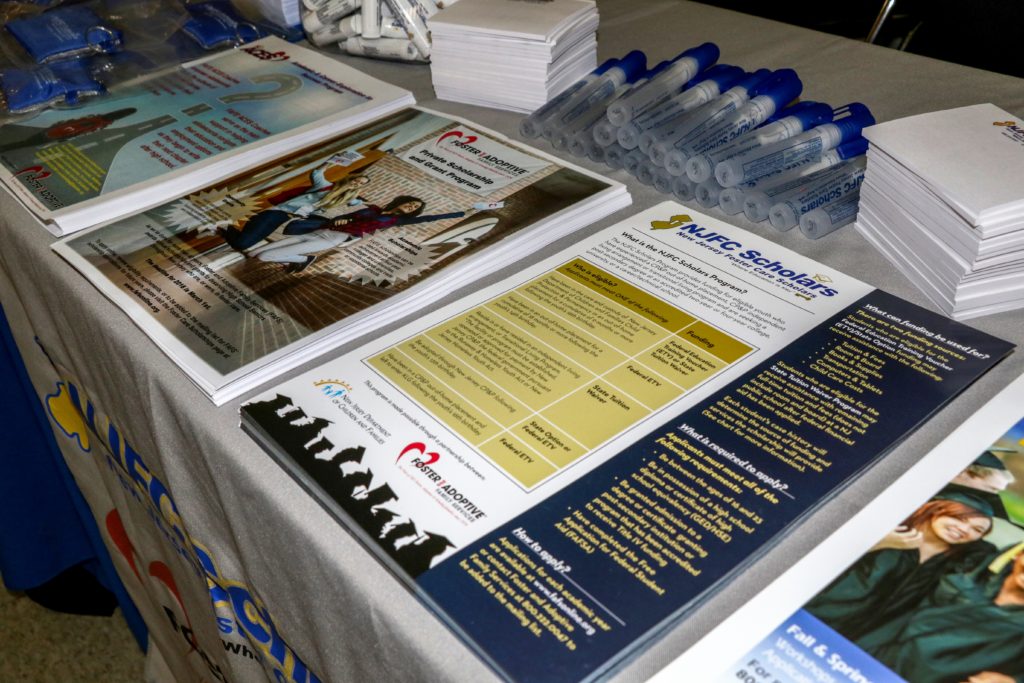Youth in care across the nation have an uphill battle when it comes to education. Each time a child is moved to a new foster home they can fall months behind their peers at school. They must overcome staggering odds to graduate from high school, with only half receiving their diplomas. For those that go on to college, the numbers are even more daunting.
As we discussed in a previous newsletter: “The national nonprofit Foster Care to Success, in their January 2014 publication Fostering Success in Education: National Factsheet on the Educational Outcomes of Children in Foster Care, stated that 84 percent of foster youth ages 17-18 want to attend college, yet only 20 percent manage to do so, and of those, only 3 percent of those graduate with a bachelor’s degree.”
States are enacting laws and allocating funding to help foster children graduate college. New York will spend $4.5 million in 2018 to help foster youth cover the cost of tuition, books and housing, which is up from the $3 million spent last year. Since 2015, California has passed a bill every year to provide additional support services for foster youth attending college, such as an assigned counselor.
For most of these students, the financial burden of college is too large of an obstacle to overcome when they don’t have parents to turn to for financial support. Even with a part-time job, it can be difficult to cover the growing costs of college. However, for the last 15 years, the New Jersey Foster Care Scholars Program has helped thousands of eligible foster youth attend schools across the country.
Since its inception in 2003, the NJFC Scholars Program has served 2,649 students at 419 postsecondary institutions through funding from the Federal Education Training Voucher (ETV). When asked how prepared she felt when first going to college, Kaysie Getty, a former NJFC scholar and panel speaker at the NJFC 15th Anniversary Celebration, replied with, “Financially, yes, I was prepared. I can say that because I’m an NJFC Scholar.”
From 2006 to the end of the 2017-2018 academic year, more than $7 million worth of books, school supplies, food, transportation, housing and tuition have been provided to NJFC Scholars. This year, for the first time in the program’s history, there were enough students enrolled in colleges and vocational schools to use all of the available ETV funding offered through the NJFC Scholars Program.
At the anniversary celebration, Stephanie Ahenkora, a former NJFC Scholar and panel speaker, expressed her gratitude for the program. “The NJFC Scholars (Program) offers a lot of scholarships and support. So for me, while I’m in college, I needed a laptop. Guess who I called? (FAFS) That’s right. So they were able to order me a new laptop, which I thank God for them. Getting bus tickets, you know, NJFC Scholars provided my transportation costs because I had no car and I needed those bus tickets, so thank you guys.”
Since 2006, an additional $2 million was awarded to those eligible who require extra support to cover the cost of tuition at public colleges in New Jersey through the State Tuition Waiver Program.
At the 15th Anniversary Celebration, New Jersey Department of Children and Families Commissioner Christine Norbut Beyer explained the NJFC Scholars Program is not “just a scholarship. It’s a vital support network. We want to do whatever we can to support eligible students in pursuing their future.”
An estimated 31 percent of youth in care will experience homelessness at least once by their 26th birthday. To help lower this statistic, FAFS provides eligible NJFC Scholars with a place to stay when there are breaks in the school year through the Gap Housing Program. Since it began in April of 2017, the program has ensured that 44 foster youth didn’t have to worry where they would be sleeping when the semester ended.
The NJFC Scholars Program continues to evolve and grow. To let the Scholars know they have someone thinking about them as they transition back to school, FAFS recently started sending out care packages that include school supplies, snacks and a note offering words of support. FAFS has also increased its direct outreach to students through welcome packets from FAFS’ Director of Scholarship Programs Marjorie Blicharz and the FAFS’ Scholarship Coordinators that give an overview of the program, explain the available funding and connect them with supports.
To maintain this connection and provide continued support, there’s now a monthly newsletter sent to every student in the program that features seasonal information, school tips, outside resources and a section highlighting one of the Scholars and a member of the FAFS staff.
“I want this program to be more than just a scholarship,” said Blicharz. “I want it to be seen as that support or constant that our students can call with questions or if they need something.”
To learn more about the challenges foster youth face across the country, click here.
To learn more about the NJFC Scholars Program, click here.

